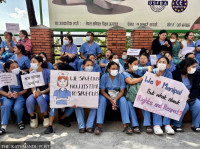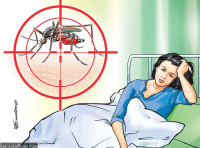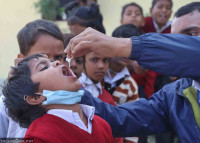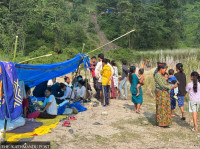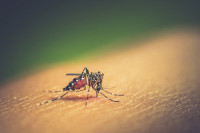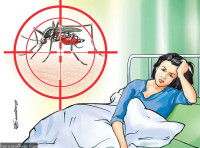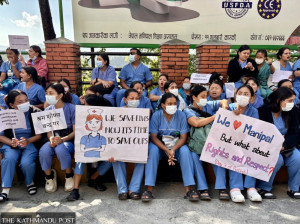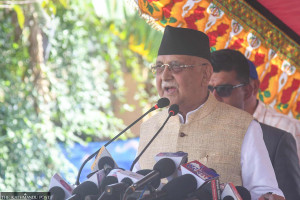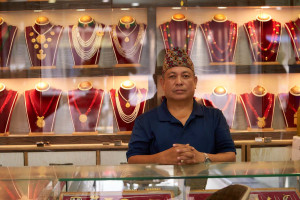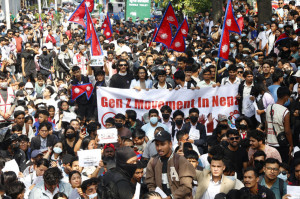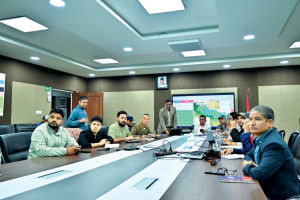Health
Covishield shots to be given to people aged 18 years and older
Serum Institute on Saturday delivered 1 million vaccine doses Nepal had already paid for.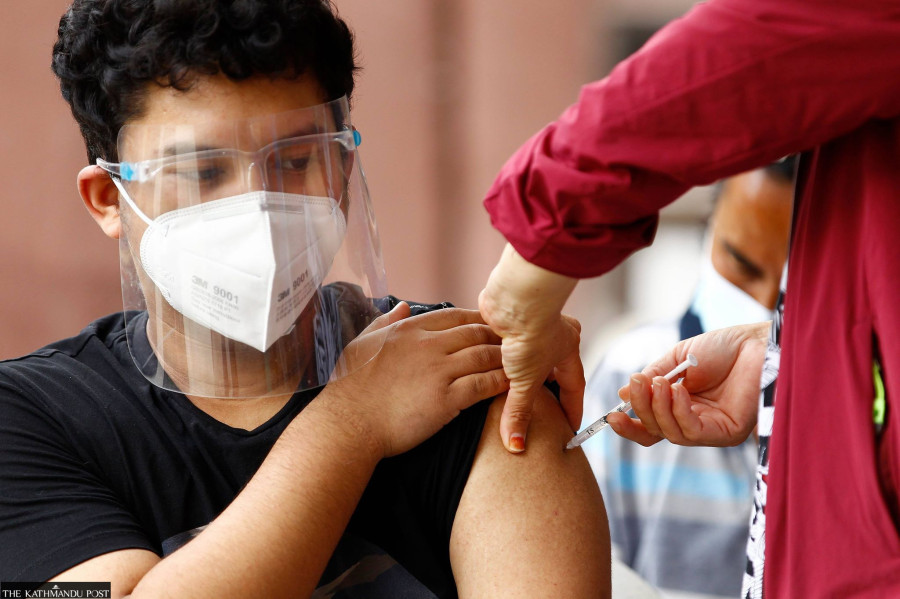
Arjun Poudel
The one million doses of the Covishield vaccine received from the Serum Institute of India on Saturday will be provided to people above 18 years old.
As some districts have already started inoculating all people above 18 years old, officials at the Ministry of Health and Population said that there is no special priority group for the vaccine.
“Unlike in the past, we do not have any priority group for the vaccine now,” said Dr Samir Kumar Adhikari, joint spokesperson for the Health Ministry. “Districts can provide the jabs to people setting their own priority as per the availability of the doses.”
Second dose of the vaccine will be provided after 12 to 16 weeks of the first dose, according to Adhikari.
The Serum Institute of India, which manufactures AstraZeneca’s Covid-19 vaccine under the brand name Covishield, supplied 1 million doses of the vaccine on Saturday.
The vaccine is part of the 2 million doses the government purchased in February.
“We have received 1 million doses of vaccine from the Serum Institute of India,” said Sagar Dahal, chief of the National Immunisation Programme. “We will hold a meeting and make a decision, whom to provide the vaccine.”
Officials at the Ministry of Health and Population had told the Post that they expect 2 million doses, as talks had been held for additional 1 million doses under grant assistance with the southern neighbour.
The government had signed a deal to buy 2 million doses of Covishield, the AstraZeneca type vaccine, at $4 per dose.
Serum supplied 1 million doses of the vaccine on February 21 and promised to deliver the remaining 1 million doses within 10 days. But after the second wave of infections hit India, authorities there restricted exports of the vaccine, affecting the deliveries to Nepal.
Due to the restriction by the Indian authorities, the government in Nepal could not provide a second dose of the vaccine to those above 65 years old on time, who took the first dose of Covishield between March 7 and 15.
Around 1.4 million of those elderly people have to wait for more than 18 weeks to get the second dose of the vaccine.
The Health Ministry provided the second dose of the vaccine to the said people after Bhutan and Japan supplied the AstraZeneca vaccine. Bhutan supplied its 230,000 surplus doses and Japan provided 1,614,740 doses of the vaccine in August.
Public health experts say that authorities should ensure a second dose to avoid the vaccine crisis like in the past.
“As authorities in many districts have already started inoculating people above 18 years, they should ensure a second dose to those who take the first dose of the vaccine,” said Dr Shyam Raj Upreti, coordinator of the Covid-19 Vaccine Advisory Committee. “It will be another mistake to administer all jabs hoping to get additional doses under grant.”
After India restricted vaccine export, authorities in Nepal signed deals with a Chinese and an American vaccine manufacturing companies to purchase their vaccines.
Officials at the Health Ministry said that no additional doses of Covishield is being bought from India.
Nepal has so far used AstraZeneca vaccine manufactured in India, Japan and Europe; Vero Cell vaccine developed by Sinopharm of China; and single shot Janssen vaccine made by Johnson & Johnson in the United States of America.
The government has already purchased 10 million doses of the Vero Cell vaccine from China. A deal has been reached with the COVAX facility to purchase 9.9 million doses (5.9 million doses of Vero Cell and 4 million doses of Moderna vaccine) through a cost-sharing mechanism.
COVAX, the UN-backed international vaccine-sharing scheme, has committed to providing Nepal 13 million doses of Covid-19 vaccines, which will be sufficient to inoculate 20 percent of the total population.
Apart from this, the facility is also assisting countries including Nepal to purchase the vaccine through a cost-sharing mechanism, which means the government will pay COVAX the amount equivalent to what COVAX pays to vaccine manufacturers.
Officials said that the government has already made payment for 5.9 million doses of the Vero cell vaccine to be purchased through COVAX under a cost-sharing mechanism.
Along with the Vero Cell vaccine, the government has also made the payment for 4 million doses of the Moderna vaccine, which is also being purchased under COVAX’s cost-sharing mechanism.
Vero Cell vaccine doses bought from the COVAX facility under cost-sharing mechanism are likely to be delivered starting November.
Officials at the Ministry of Health and Population said they have been waiting for the supply schedule of the vaccine.
Nepal started its vaccination drive with 1 million doses of Covishield, the AstraZeneca type vaccine, which the Indian government had supplied under grant assistance. India had supplied an additional 100,000 doses of Covishield in grants to the Nepal Army.
Besides, Nepal received 2 million doses of Covishield for which the government had paid.
Nepal received 348,000 doses of Covishield from COVAX in March.
Altogether, the country has received 18,857,590 doses of Vero Cell, AstraZeneca and Johnson and Johnson vaccines.
So far, 6,446,957 people (around 21.5 percent of the total population) have been immunised with Covid-19 vaccine.




 18.12°C Kathmandu
18.12°C Kathmandu
